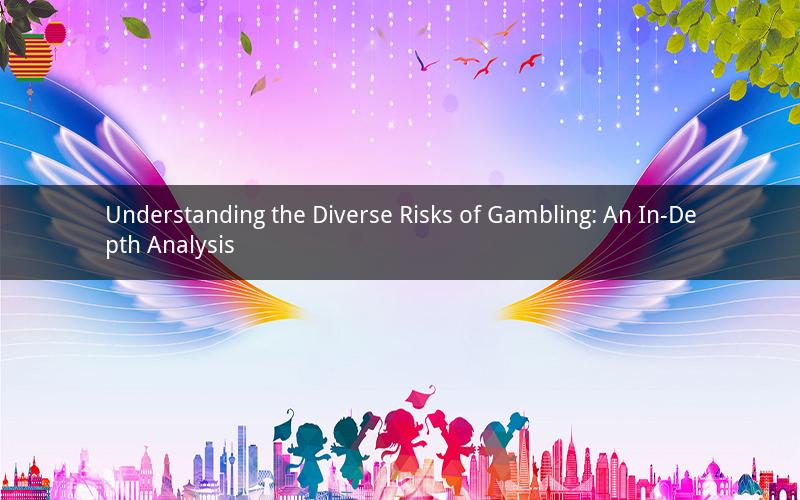
Gambling, an activity that has been around for centuries, continues to captivate individuals across the globe. However, it is important to recognize that it comes with various types of risks. In this article, we will delve into the different types of risks associated with gambling, shedding light on their implications and consequences.
1. Financial Risk
One of the most apparent risks of gambling is financial. Individuals may become addicted to the thrill of winning and may start betting more money than they can afford to lose. This can lead to significant financial strain, including debt, loss of savings, and even bankruptcy. Moreover, the allure of potential winnings can make individuals take excessive risks, leading to even greater financial losses.
2. Psychological Risk
Gambling can also have severe psychological impacts. Individuals may experience stress, anxiety, and depression due to the pressure of winning or the fear of losing. This can lead to a range of mental health issues, including addiction, paranoia, and even suicidal thoughts. The psychological toll of gambling can extend beyond the individual, affecting family members and friends as well.
3. Social Risk
Gambling addiction can have a detrimental effect on an individual's social life. Relationships may become strained due to financial difficulties, trust issues, and emotional turmoil. Family members and friends may become frustrated, leading to a breakdown in communication and support. Additionally, individuals may isolate themselves from social activities to focus on gambling, further exacerbating their social risks.
4. Legal Risk
Gambling laws vary from country to country, and individuals who engage in illegal gambling activities may face legal consequences. This can include fines, imprisonment, and a criminal record. Moreover, individuals who engage in fraudulent activities to support their gambling habits may also face legal repercussions.
5. Health Risk
Gambling can have significant health risks, both physical and mental. The stress and anxiety associated with gambling can lead to high blood pressure, heart disease, and other health problems. Additionally, individuals with gambling addiction may experience sleep disturbances, fatigue, and other physical symptoms. The mental health risks mentioned earlier can also contribute to a weakened immune system and other health issues.
Now, let's explore some frequently asked questions regarding the risks of gambling:
Q1: How can I identify if someone is a gambling addict?
A1: Identifying a gambling addict can be challenging, but some common signs include a preoccupation with gambling, lying about gambling activities, borrowing money to fund gambling, and neglecting responsibilities due to gambling.
Q2: What are some effective ways to prevent gambling addiction?
A2: Effective ways to prevent gambling addiction include setting a budget, limiting the time spent on gambling, seeking support from friends and family, and educating oneself about the risks associated with gambling.
Q3: How can I help a loved one who is struggling with gambling addiction?
A3: Helping a loved one with gambling addiction involves offering support, encouraging them to seek professional help, and participating in therapy sessions. It is important to maintain patience and empathy throughout the process.
Q4: Can gambling addiction be treated?
A4: Yes, gambling addiction can be treated. Treatment options include therapy, support groups, and in some cases, medication. It is crucial for individuals struggling with gambling addiction to seek professional help to overcome their addiction.
Q5: Are there any legal repercussions for underage gambling?
A5: Yes, underage gambling is illegal in many countries. Individuals caught engaging in underage gambling may face fines, legal penalties, and other consequences. It is essential for minors to be aware of the legal and social risks associated with gambling.
In conclusion, gambling poses various risks that can have profound implications on an individual's life. By understanding these risks, individuals can make informed decisions about their gambling habits and seek help if needed. It is crucial to prioritize mental, financial, and social well-being when engaging in gambling activities.